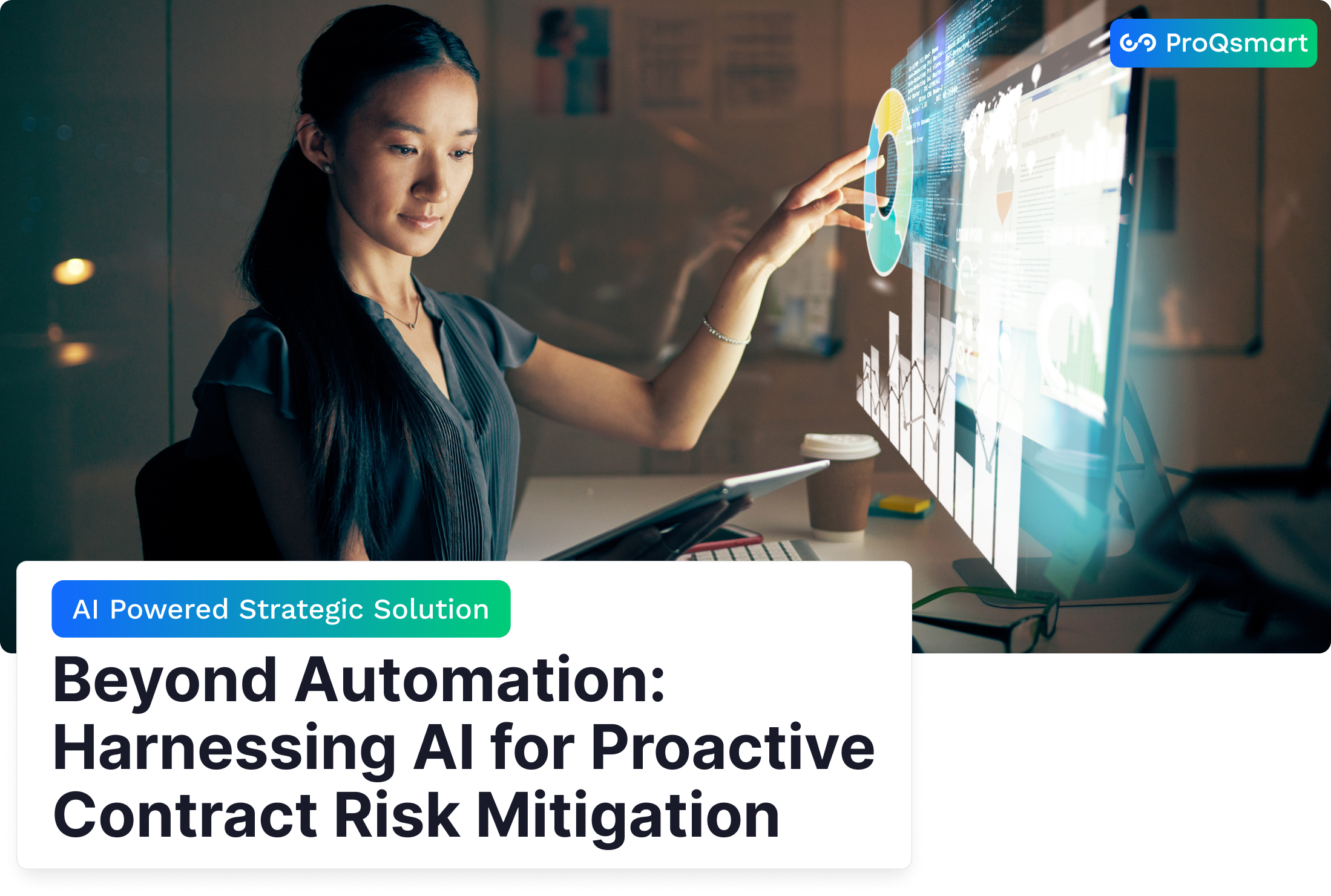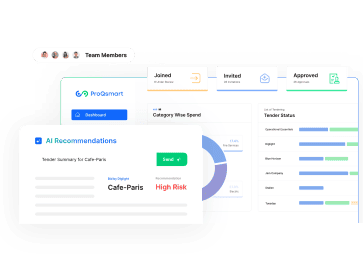Contract management is the administration of contracts between organizations in order to maximize performance and deliver value while minimizing risk and costs.
Contract management allows organizations to mitigate risks and manage costs by emphasizing the core components, including drafting, negotiation, performance monitoring, and renewal. It’s a key part of good contract and business relationship management.
Not the least of which, it plays a crucial function in public procurement and supply chain emergency management operations. Keeping vendor contracts under direct management increases efficiency and profitability.
From defining unambiguous provisions to monitoring performance and obligations, effective contract management guarantees that agreements are in the best interest of the organization and compliant with legal requirements.
For practitioners managing diverse supplier communities or regulatory requirements this year, getting up to speed on best practices in contract management is key.
In this article, we’ll take a look at some of the most actionable insights and best practices to get more out of your contract management processes.
Traditional Contract Management Limitations
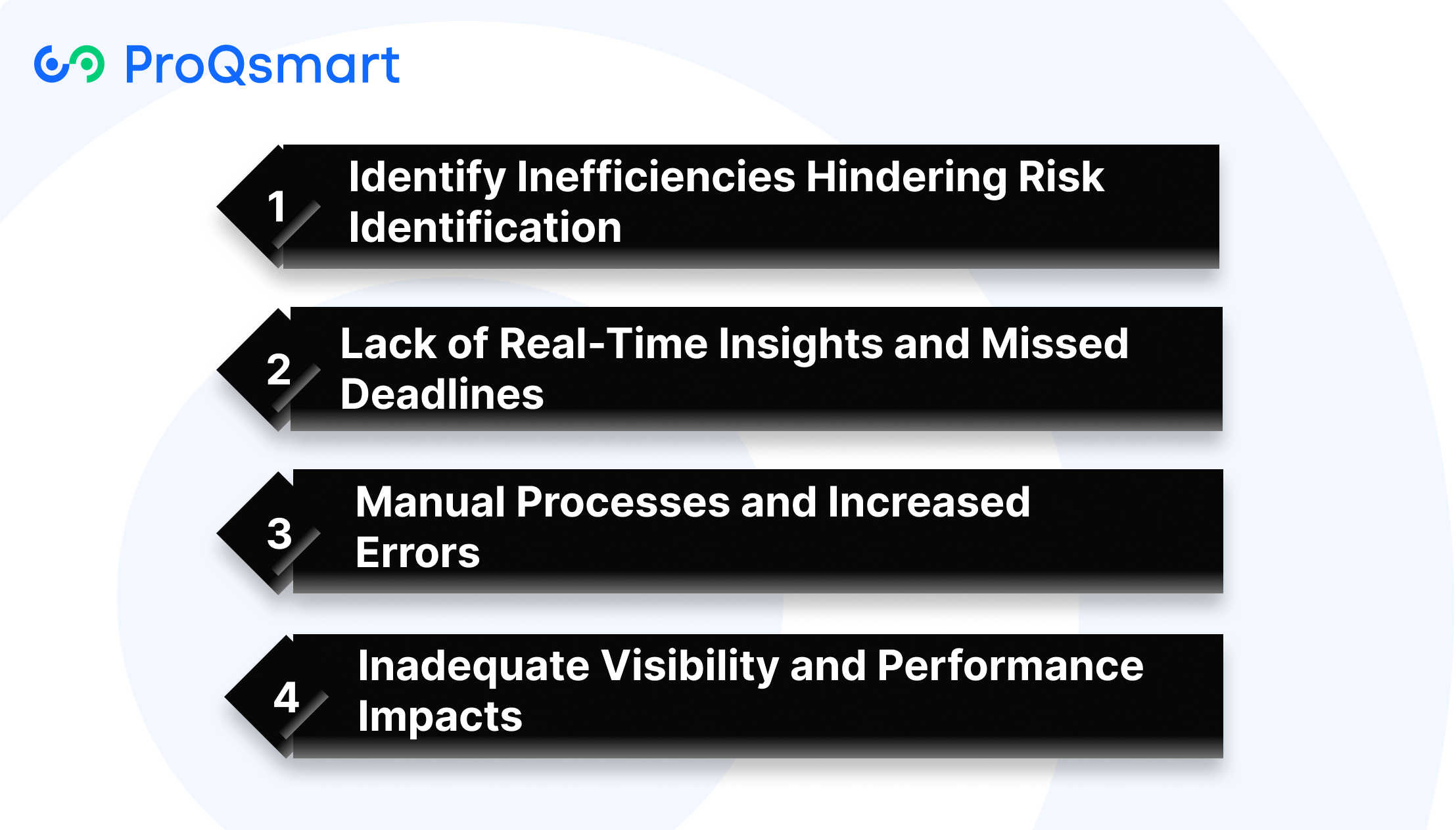
Identify Inefficiencies Hindering Risk Identification
Ineffective manual processes introduce blind spots that hide risks just waiting to materialize. Having contracts locked in filing cabinets or hidden in email threads only leads to disconnected workflows.
Siloed data makes it much more difficult to track and manage important terms and obligations. This dramatically raises your organization’s legal and financial risk. Without centralized systems, recognizing duplicate liabilities or agreements that have outlived their useful life becomes a reactive and often costly challenge, leaving organizations exposed to surprise penalties.
Lack of Real-Time Insights and Missed Deadlines
Traditional systems largely fall short of giving you real-time visibility into contract status. This challenge leads to overdue obligations and compliance failures, in addition to lost potential engagements.
For instance, an organization that does not track renewal dates without automation could find itself auto-renewed into a bad deal or miss a termination window. These oversights frequently turn into hidden fees or lost savings, draining companies of as much as 10% of contract value each year.
Manual Processes and Increased Errors
Relying on manual contract management significantly increases the potential for human error. Manual contract review takes an average of 92 minutes per contract vs just 26 seconds using AI-powered tools.
Simple mistakes in data entry, missed clauses, or misfiled agreements can halt the wheels of government and endanger relationships with constituents.
Inadequate Visibility and Performance Impacts
Further, decentralized contract storage prevents aggregated visibility into performance needed to effectively track performance and manage risk. For example, a lack of centralized documentation can create barriers in evaluating vendor performance or tracking compliance on a contract.
This lack of transparency leads to a lack of trust, ultimately impacting both strategic decision-making and operational efficiency.
Advanced Risk Identification Through AI
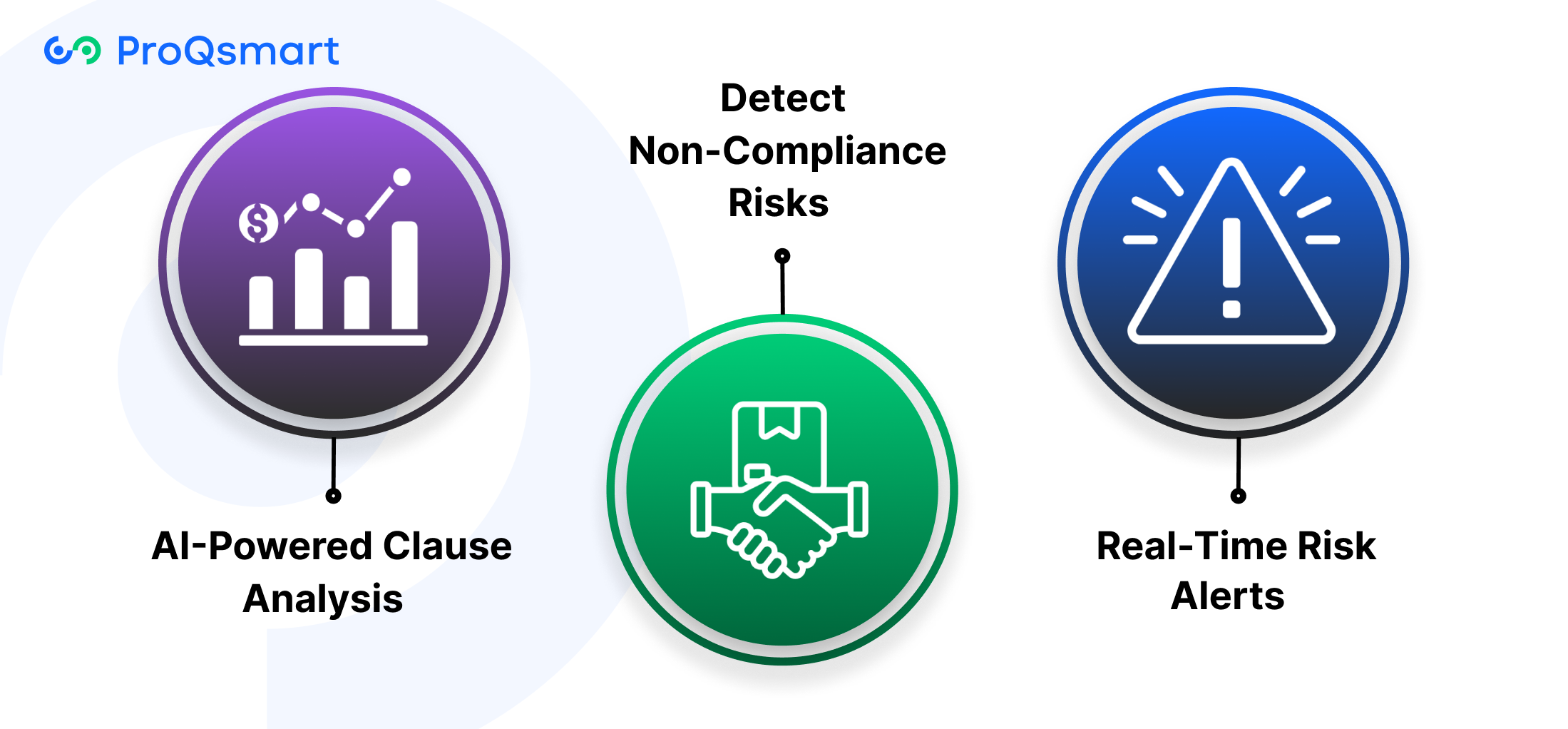
AI-powered contract management is changing the game for organizations
looking to use advanced risk identification across the entire contract lifecycle. By leveraging advanced algorithms and machine learning, AI tools analyze and extract critical insights from contracts, enabling businesses to uncover risks that often go unnoticed.
This integration makes for a much more proactive, efficient, and informed approach to managing contractual obligations and mitigating future liabilities.
AI-Powered Clause Analysis
AI is best suited to review contract clauses to detect the presence of high-risk provisions more accurately. Advanced contract lifecycle management (CLM) softwareleverages natural language processing (NLP) to automatically flag vague or ambiguous terms.
By taking these steps, you can avoid any potential disputes before they start. These tools can surface clauses contributing to liability exposure so businesses know exactly what they’re liable for and what risks they may be exposed to.
AI-enabled technologies normalize the language behind clauses providing less variability and fostering uniformity across contracts. ProQsmart’s AI capabilities enable businesses to automatically keep a searchable clause library up-to-date. This tool gives them more negotiating power since they can track the usage and outcomes of specific provisions.
Detect Non-Compliance Risks
Because legacy contracts frequently hold hidden compliance risks, AI can identify them by analyzing unstructured data. Real-time monitoring augments this by helping to identify non-compliance issues before they become a bigger problem.
One use case is that AI systems can go through contracts to find terms that go beyond typical payment ranges, giving organizations complete transparency into third-party contracts. Organizations like ProQsmart use these insights to make faster, data-driven decisions, helping reduce litigation costs and ensuring regulatory compliance while improving operational consistency.
Real-Time Risk Alerts
AI systems provide real-time alerts of emerging risks, like upcoming due dates or terms out of compliance. These alerts, which easily plug into existing workflows, empower at-risk stakeholders to take informed, swift, and effective action to prevent harm.
For example, ProQsmart’s real-time collaboration tools facilitate immediate communicationbetween project stakeholders, allowing them to make timely decisions to reduce or avoid disruptions. This proactive approach aligns with our goal of limiting organization-wide exposure to risk while being the leader in operational excellence.
Predictive Analytics for Risk Forecasting
Predictive analytics has transformed the entire contract management process by introducing a proactive, risk forecasting approach to the field. By utilizing intelligent contract management software, enterprises can process vast amounts of data to uncover root causes and mitigate risks before they escalate. This investment in digital contract management enables companies to align their strategies effectively and make informed decisions.
Historical Data Analysis
Leveraging historical contract data is essential for predicting future risks. AI analyzes past contract performance, uncovering patterns that indicate potential disputes or bottlenecks. For instance, delays from a recurring supplier can signal future challenges, enabling organizations to address them early.
Maintaining comprehensive records ensures a robust foundation for risk assessments. ProQsmart enhances this process by automating historical data tracking, benchmarking supplier performance, and simplifying pre-qualification tasks, ensuring compliance and transparency.
Identify Patterns and Trends
We know that AI is very good at finding systematic patterns in contract risk and performance. By identifying trends such as supplier delays or cost overruns, businesses can be proactive with risk management and make timely decisions to prevent potential issues.
Data visualization tools help make sense of these patterns, bringing them to life in ways that make them actionable. For instance, identifying a pattern of increasing late deliveries with seasonal peaks means you can renegotiate timelines in advance before a backlog develops.
ProQsmart helps organizations combat these issues by actively tracking supplier metrics and tracking workflows to achieve more effective contract results.
Scenario Planning and Simulations
With predictive analytics, government and business can run projections on various contract scenarios, helping both sides better plan long term strategic investments. For instance, simulating the effect of a sudden regulatory change on supplier compliance rates allows a company to create contingency plans in advance.
More adaptable strategies to contract management improve congruity with financial targets. Tools such as ProQsmart allow for capital expenditures to be tracked live and in real time. This level of flexibility reduces contract disruptions and optimizes the entire contract lifecycle.
Dynamic Compliance Tracking
Smart contract management means you have ongoing compliance tracking during the entire lifecycle of the contract. Staying compliant with dynamic compliance tracking not only saves organizations from future legal exposure, but builds valuable trust with key stakeholders.
Dynamic compliance tracking provides a clear and concise view of how each contract meets regulatory requirements, helping mitigate risks associated with penalties or reputational harm. Through the implementation of strong systems, compliance organizations can ensure due diligence and stay ahead of the curve in the face of changing regulations.
Regulatory Adherence
Meeting compliance for unique industry or sector regulations is paramount. Contracts need to be adapted to ongoing legal obligations, especially in industries such as healthcare, construction, and finance.
That process is made very easy with advanced AI tools that proactively track contracts for compliance in real time, like ProQsmart. For example, ProQsmart’s compliance feature offers an easily auditable sourcing trail, with assurance that processes meet regulatory standards.
To take compliance strategies even further, organizations can engage in proactive training of all staff with entering directly into legal standards and best practices. Coupled with enterprise-wide centralized contract lifecycle management (CLM) systems, these initiatives foster uniform compliance across all types of varied, complex agreements.
Automated Updates
Centralized, automated systems allow for more efficient and equitable compliance tracking by minimizing manual errors and compliance delays. Next Generation CLM platforms, such as ProQsmart, directly address these challenges by automating workflows and efficiently alerting stakeholders when regulatory changes occur.
Having a centralized repository means having better accessible contract data and documents, which contributes to greater efficiency. In one case, a public sector client used automated compliance tracking to stay on schedule while steering clear of expensive penalties.
By providing timely updates, organizations can better stay focused on the contracts that need the most urgent attention, reducing risks and enhancing contract outcomes.
Obligation Management
We all know that managing compliance obligations between multiple parties is hard. AI-driven solutions within collaborative platforms such as ProQsmart dynamically automate reminders, track organizational commitment levels and foster greater collaboration among stakeholders to keep the commitment moving forward.
Capabilities such as supplier performance monitoring and subcontractor management facilitate compliance tracking and management of obligations. By promoting transparency and accountability, these tools keep organizations on track to fulfill contractual oversight expectations in a timely manner.
Streamline Contract Workflows
Properly managing contracts efficiently is essential to ensure operational excellence and derive the maximum value from enterprise assets. By streamlining contract workflows, businesses will be best positioned to limit inefficiencies, decrease value leakage, and execute contracts quicker.
Adopt digital tools and automation to enhance your contract workflows’ accuracy and efficiency. This method not only improves cross-team collaboration, but it mitigates the inherent dangers of unfamiliarity.
Automate Contract Creation
New automation tools have changed the creation and drafting dynamic, expanding the possibilities and potential of contracts. To make your contract workflows more efficient, use CLM software to automate all mundane activities.
This method lessens the probability of mistakes and ensures uniformity with initial approved templates. Using templates helps ensure compliance while reducing the need for extensive back and forth revisions, saving everyone time and resources.
As an example, with CLM software you can set rules-based notifications that notify stakeholders of potential missed SLAs and risk of renewal so that they can be managed proactively. When contract workflows are automated, it’s more likely that value can be retained in contracts by saving time and keeping processes centralized.
Simplify Approval Processes
Approval delays are usually due to bottlenecks such as lack of clarity around who needs to approve what, or even manual routing. Digital tools can greatly simplify these processes that plague contract development by automating workflows and providing real-time visibility into where things stand with approvals.
ProQsmart, for example, combines approval workflows with real-time tracking to remove confusion and cut turnaround time. Centralized systems maximize efficiency even more by centralizing all data, ensuring all stakeholders can easily access and approve contracts.
Enhance Collaboration
With smart technology, collaboration is at the core of effective and streamlined contract management. Digital platforms such as ProQsmart enable enhanced real-time collaboration and share updated documents, keeping everyone on the same page.
With tools such as change tracking, comment resolution, and version history, teams can resolve changes faster. Prioritizing a collaborative culture from the start helps contracts get executed effectively and efficiently, narrowing the scope for disputes to arise and fostering trust between all stakeholders.
Data Analytics and Real-Time Reporting
By harnessing the power of predictive and prescriptive analytics, organizations can uncover actionable insights that drive informed decision-making, optimize risk management processes, and enable more effective performance tracking.
Improve Decision-Making
Changes to decision-making enabled through data analytics delivers accurate and timely insights into contract performance. By measuring key performance indicators including cost effectiveness, turnaround times and audit compliance, entities can pinpoint opportunities for improvement.
For example, analytics can identify the worst performing suppliers or contracts that need to be re-negotiated. This data-driven approach supports strategic contract renewals and negotiations, helping to ensure all contracts and vendors are aligned to support overarching business goals.
Enhance Risk Management
Robust analytics not only fit into existing risk management frameworks, they improve them, allowing agencies to flag potential contract risks early in the process. With real-time monitoring, issues like non-compliance or missed deadlines can be immediately flagged, and the right team can take corrective actions before they become bigger problems.
A Contract Lifecycle Management (CLM) system centralizes all relevant data, giving you a single source of truth that makes risk evaluation much easier. Only with continuous, 24/7 monitoring can you actively mitigate all risks to protect your organization’s interests.
Track Key Performance Indicators
Identifying and tracking Key Performance Indicators (KPIs)such as contract value, compliance rates and delivery performance helps measure success. CLM systems give you real-time access to KPI-related data, giving you powerful insights into strong and weak performance trends.
Establishing a robust KPI tracking system, supported by tools like ProQsmart, empowers businesses to make informed, strategic decisions while simplifying reporting processes.
Best Practices for AI Implementation
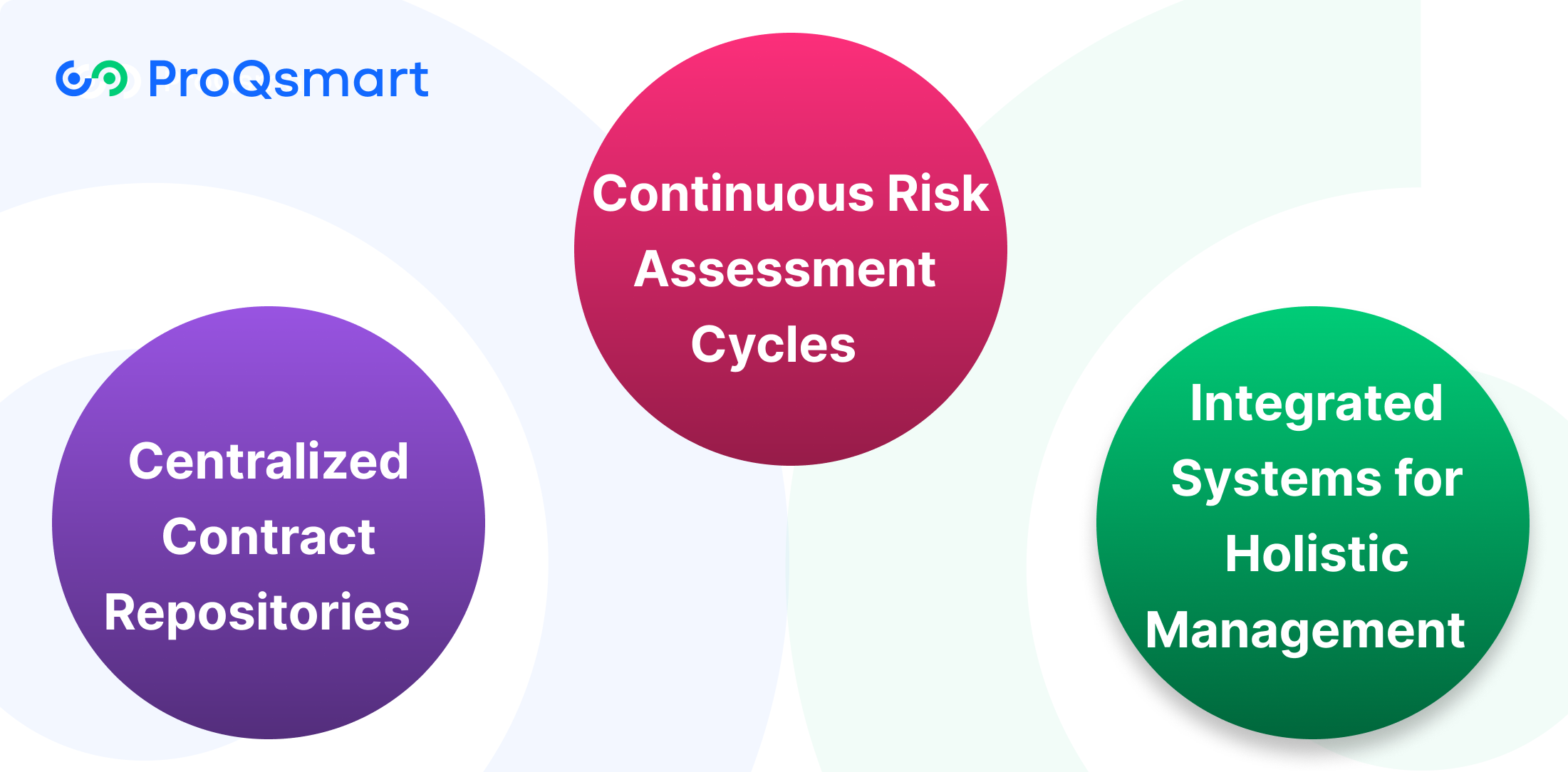
Implementing AI in contract management requires a tailored approach to realize its full transformative potential. By identifying measurable success criteria, organizations set themselves up to hold AI systems accountable for delivering business value.
Defining a roadmap creates a shared understanding, aligning each facet of the implementation process with a focus on tangible outcomes. Quality data is just as important, as clean, high-quality data is what directly impacts AI’s output and overall potential.
Transparency in AI decision-making enhances public trust, and following legal standards such as data privacy regulations protects against non-compliance. Partnering with vendors experienced in contract management, such as ProQsmart, offers pre-built AI solutions and technical support, ensuring a smooth transition.
1. Centralized Contract Repositories
Storing all contracts in one centralized location only increases accessibility. It greatly reduces the chance of lost or misplaced documents.
Through contracting all contracts in one centralized location, organizations set themselves up for quick and easy access during an audit or review. Continuous care by keeping a central repository, protected with strong encryption to ensure compliance with regulations, minimizes exposure from unauthorized access.
ProQsmart’s automated workflows facilitate centralized systems that centrally manage contract documents while tracking revisions over time. This method creates a level of consistency and transparency across the board for all contract-related tasks.
2. Continuous Risk Assessment Cycles
Regular risk assessments identify vulnerabilities within contracts, adapting to changing markets or regulations. Technology facilitates dynamic risk evaluations, integrating them into workflows without disrupting operations.
For instance, ProQsmart’s supplier performance monitoring identifies risks tied to contract compliance, ensuring proactive issue resolution. Continuous assessments reduce errors and bolster operational resilience.
3. Integrated Systems for Holistic Management
When organizations integrate contract management tools with ERP systems, seamless data flow between the two provides organizations with a holistic view of contract activities.
Through this comprehensive integration, ProQsmart allows procurement to better fit within budgets, automate and streamline workflows, and increase collaboration with suppliers. With transparency, accountability, and strategic oversight, holistic management extends beyond just execution to maximize long-term business value.
Conclusion
The integration of AI-driven tools in contract management marks a transformative shift in how organizations handle contracts. By automating complex processes, AI enhances transparency, accuracy, and efficiency across the contract lifecycle. It enables early risk identification, predicts future challenges, and ensures compliance at every stage. These capabilities streamline workflows, reduce administrative burdens, and provide access to real-time data and analytics for smarter decision-making.
Adopting AI-powered solutions is no longer optional—it is essential for staying competitive in today’s fast-paced business environment. With improved oversight, optimized outcomes, and a strengthened competitive edge, AI empowers organizations to unlock the full potential of their contracts while aligning with strategic goals.
Explore ProQsmart’s AI-driven contract management solutions—book a demo today to discover how advanced tools can revolutionize your contract operations and drive measurable results.

